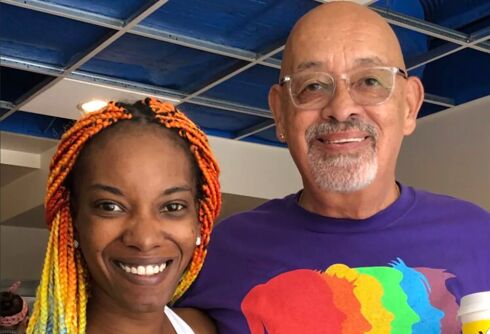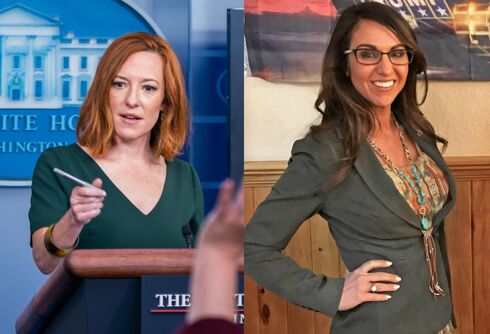BUENOS AIRES, Argentina — While the appointment of Jorge Mario Bergoglio as pope has filled many in this deeply Catholic country with pride, members of the gay community are unsurprisingly less than enthusiastic with the Vatican’s choice.
Nearly three years before Argentina became known as home to the first Latin American pope, it made history as the first country in the region to approve gay marriage — an action that then-Cardinal Bergoglio actively opposed.
The gay community here remembers Bergoglio, now Pope Francis, as the man who launched “a war of God” against the move to approve gay marriage.

Photo: Natacha Pisarenko, AP
“He was the visible face of the Catholic Church’s opposition to equal marriage and he approached it from a fundamentalist position, posturing that he had to wage a war of God against what he considered a plan of the devil,” said Esteban Paulon, president of the Argentine Federation of Lesbians, Gays, Bisexuals and Transsexuals.
Never Miss a Beat
Subscribe to our newsletter to stay ahead of the latest LGBTQ+ political news and insights.
But that isn’t the whole story.
Before the Argentine Congress approved gay marriage in July 2010, some provinces in the country and individual judges had already begun allowing it.
With that reality and the pro-gay marriage stance of President Cristina Fernandez, the church had to decide what to do.

Photo: Natacha Pisarenko, AP
According to the new pope’s authorized biographer, Sergio Rubin, Bergoglio was politically wise enough to know the church couldn’t win a straight-on fight against gay marriage, so he urged his bishops to lobby for gay civil unions instead. It wasn’t until his proposal was shot down by the bishops’ conference that he publicly declared what Paulon described as the “war of God” — and the church lost the issue altogether.
Despite his conservatism, “Bergoglio is known for being moderate and finding a balance between reactionary and progressive sectors,” Paulon said. “When he came out strongly against gay marriage, he did it under pressure from the conservatives.”
The first Argentine couple to be married, before the national law was passed, were Alex Freyre and Jose Maria Di Bello in December 2009, in the southern city of Ushuaia, province of Tierra del Fuego. Their union was made possible by a judge who declared unconstitutional two articles of the civil code limiting marriage to that between a man and a woman, and the province’s governor, who backed the judge and issued a decree allowing gay marriage. Shortly afterward, however, a judge declared the marriage “nonexistent.”
Freyre, executive director of the Buenos Aires AIDS Foundation, wrote on his Twitter account this week that Pope Francis “knows that gay marriage isn’t the end of the world or the species.”
“Now he can say it in Latin.”
In another Tweet, he remarked, “Maybe the fact that the Vatican has chosen a pope from a country where gay marriage is allowed is a sign that they get it?”
Freyre went on to urge the new pope “to renovate the church so that it resumes a path of spirituality.”
Paulon also urged Pope Francis to promote true reform in the church.
Article continues below
But Paulon is also realistic.
He recalls, for example, that when Bergoglio served as head of the Argentine conference of bishops for several years, he was a die-hard opponent of abortion, and argued against sex-education laws that permit free access to contraceptives and allow Argentines to determine their gender based on their self-identity instead of their biology.
In any case, analysts note, any real reform of these issues would not be up to Pope Francis alone, but would rise or fall only after an internal Vatican debate between diverse factions.
Bergoglio is a man “open to dialogue,” said Adolfo Perez Esquivel, one of Argentina’s principal human rights leaders and a Nobel Peace Prize winner.
Perez said he hoped the new pope would “form teams that can help him effect the changes that the church really needs.”
This material may not be published, broadcast, rewritten, or redistributed.













